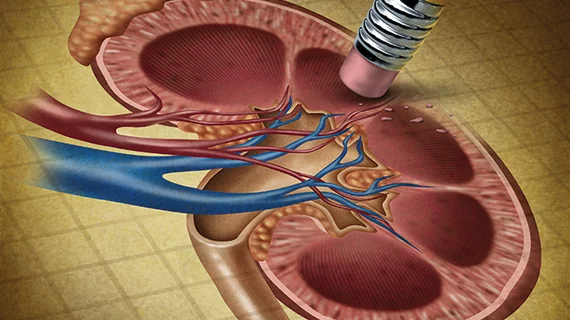How taking blood pressure medication can lead to kidney damage
The long-term use of medications commonly prescribed treat high blood pressure may cause kidney damage, according to new research published in JCI Insight.
The study's authors noted that medications such as ACE inhibitors and angiotensin receptor blockers have all been associated with hardened kidney vessels, which can lead to permanent organ damage.
“Our studies show that renin-producing cells are responsible for the damage,” co-author Maria Luisa Sequeira Lopez, MD, of the University of Virginia (UVA) department of pediatrics, said in a prepared statement. “We are now focusing on understanding how these cells, which are so important to defend us from drops in blood pressure and maintain our well-being, undergo such transformation and induce kidney damage. What is needed is to identify what substances these cells make that lead to uncontrolled vessel growth.”
Lopez and colleagues noted that patients should keep taking their medications as normal. However, they see a definite need for more research in this area.
“It would be important to conduct prospective, randomized controlled studies to determine the extent of functional and tissue damage in patients taking medications for blood pressure control,” co-author Ariel Gomez, MD, also from UVA’s department of pediatrics, said in the same statement. “It is imperative to find out what molecules these cells make so that we can counteract them to prevent the damage while the hypertension is treated with the current drugs available today.”
Read the full study here.
